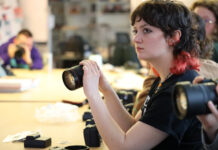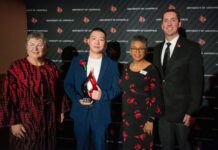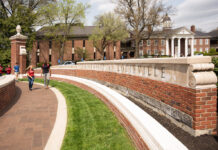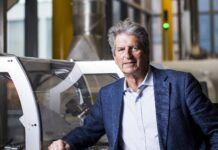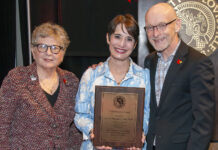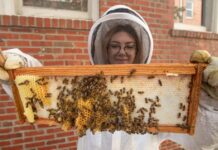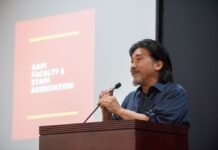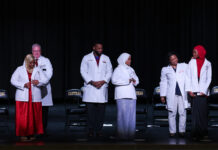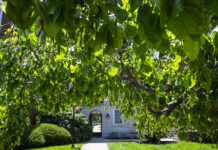
It might be about tiny robots, but Ruoshi Zhang’s paper is getting big attention.
The University of Louisville doctoral candidate just won best student paper at the IEEE Conference on Manipulation, Automation and Robotics at Small Scales (MARSS 2018), held in Nagoya, Japan in early July.
His paper, “Design, analysis and fabrication of sAFAM, a 4 DoF assembled microrobot,” focuses on research conducted at UofL’s J.B. Speed School of Engineering. He’s studying how to build a better AFAM micro-robot — one small enough to manufacture nanotechnologies, or even manipulate cells to cure disease.
Zhang’s paper was chosen from among eight finalists, a list that included students from University of Michigan, University of Pennsylvania, and University of California Berkeley, among others.
“Winning the conference is a great matter to me,” he said. “I didn’t realize this idea was worth any award when I came up with it; it was only a small modification to make AFAM (robot) better.”
The bottom line is that, in order to make tiny things, the workers themselves need to be tiny. It’s an idea Zhang became enamored with after he was introduced to the tiny bots by a fellow student.
“The small size, the mechanism, the intriguing design and exquisite structures took my heart,” he said.
As a doctoral student at UofL, Zhang works under Dr. Dan Popa at the Next Generation Systems robotics lab in the Department of Electrical and Computer Engineering. There, Zhang was introduced to the AFAM, a micro-robot created by Dr. Popa and colleagues 10 years ago.
Zhang’s paper focuses on his research into how best to resolve issues with the AFAM, including its difficult assembly and failure rate. Popa said he was very proud of Zhang’s work and award.
“He worked hard on all aspects of the paper, conducted both simulation and experiments, and wrote down his results,” Popa said. “I think it speaks well for the research dedication of our students and for the quality of engineering graduate programs here at Speed School.”
As for Zhang, he’s now working on a way to direct the bots using lasers. After he finishes his PhD at UofL, he’s planning to continue his research, either working with industry or at a university.
“This field is very active and there are new developments everyday,” he said. “I’m excited about it.”


